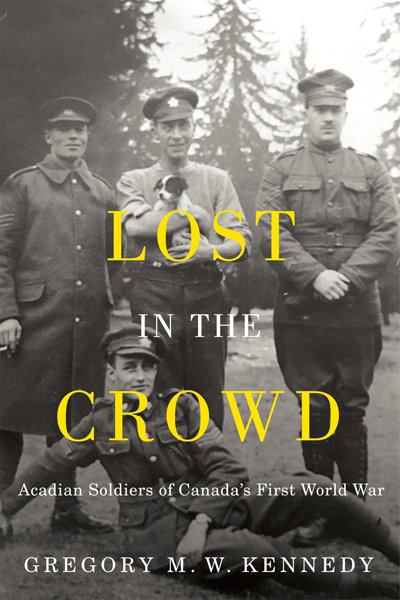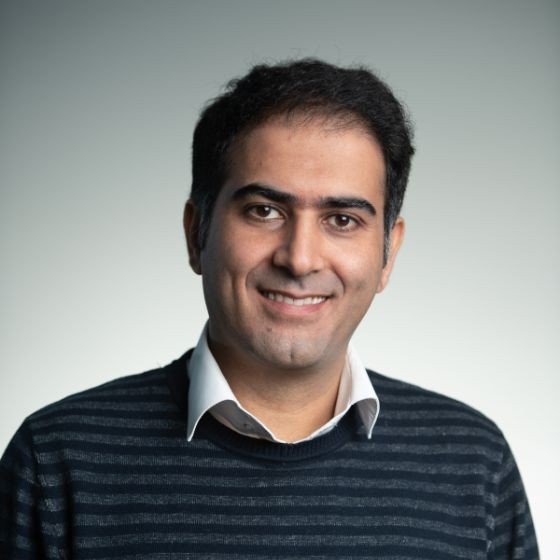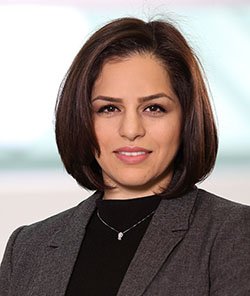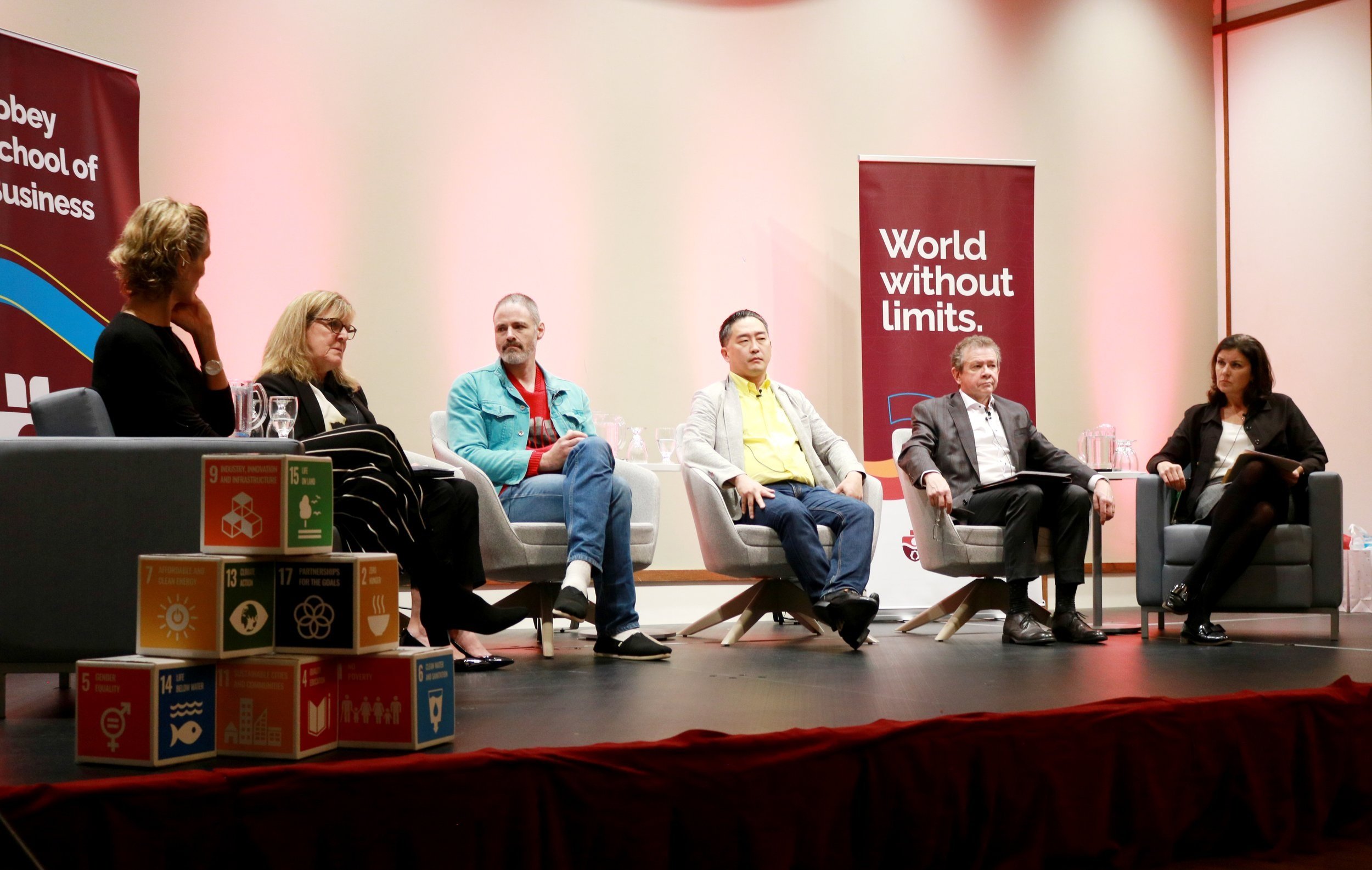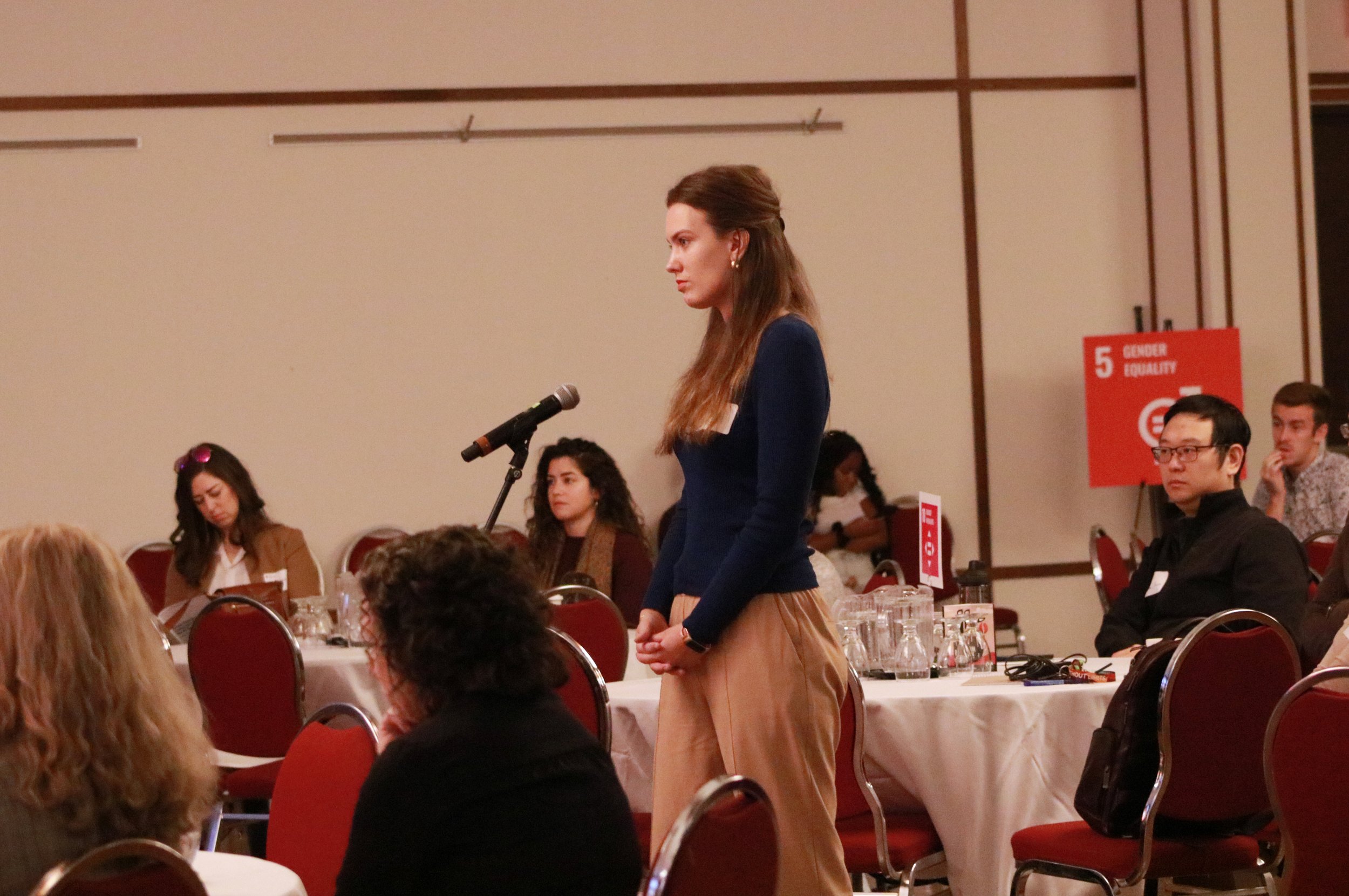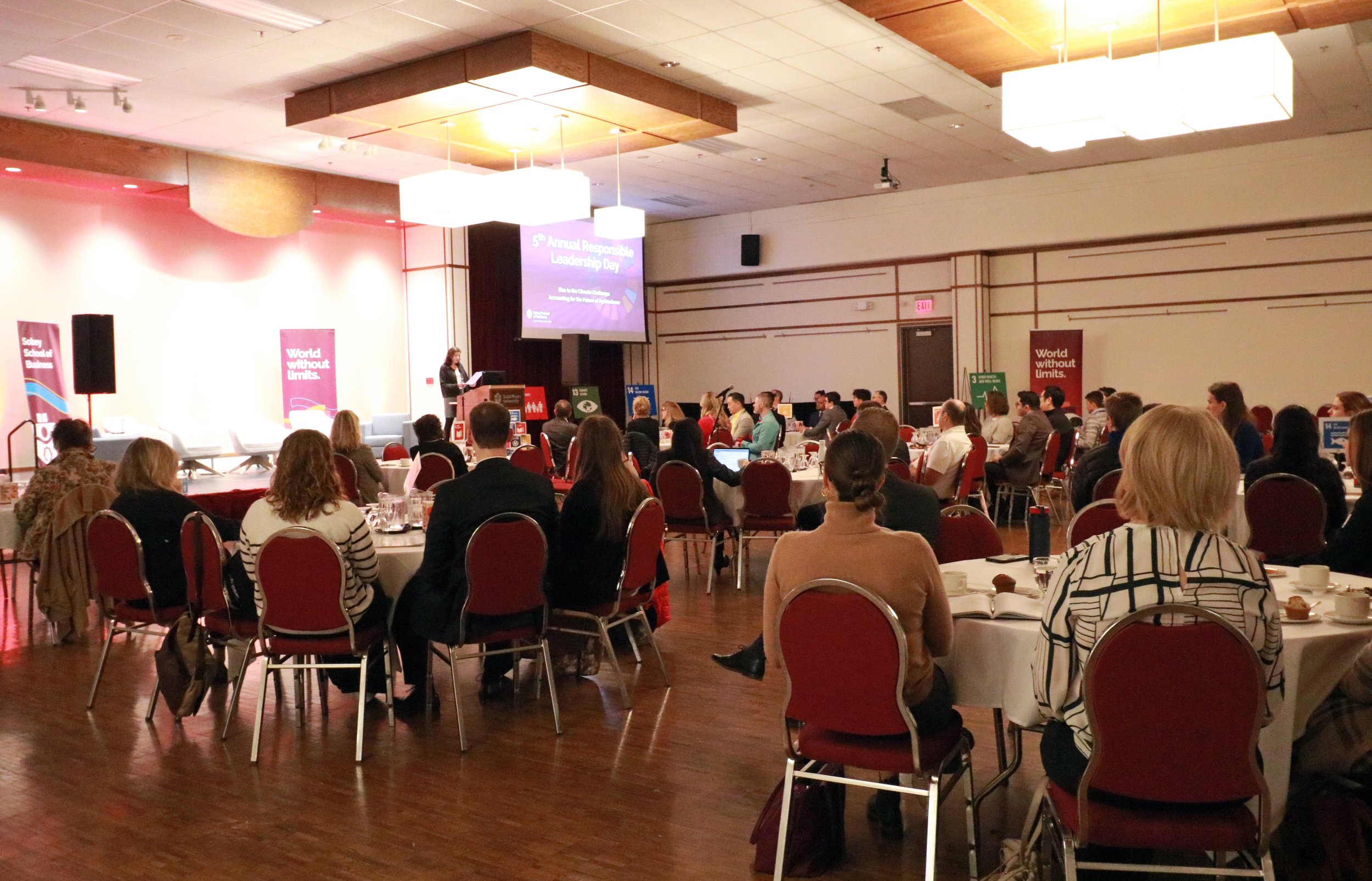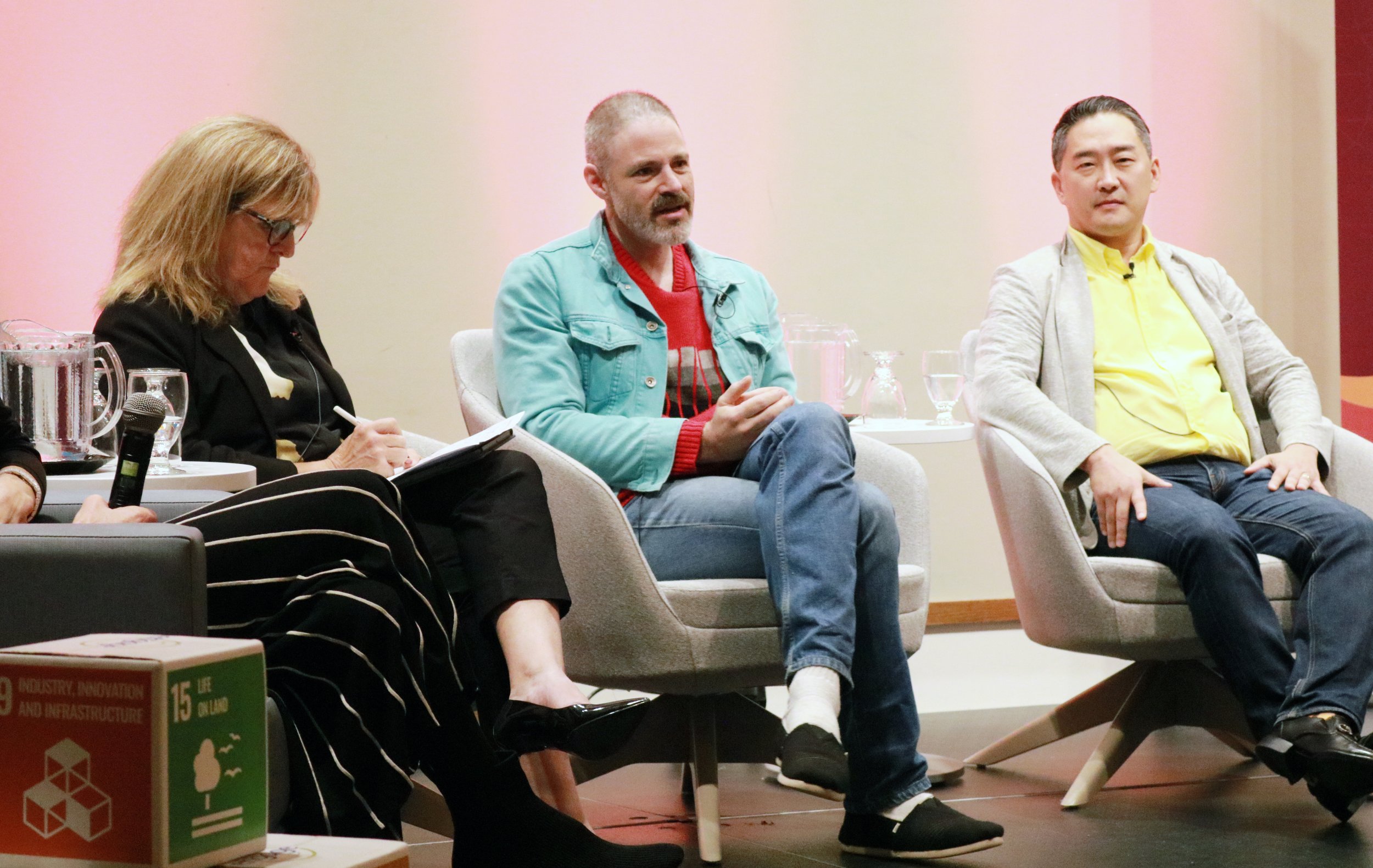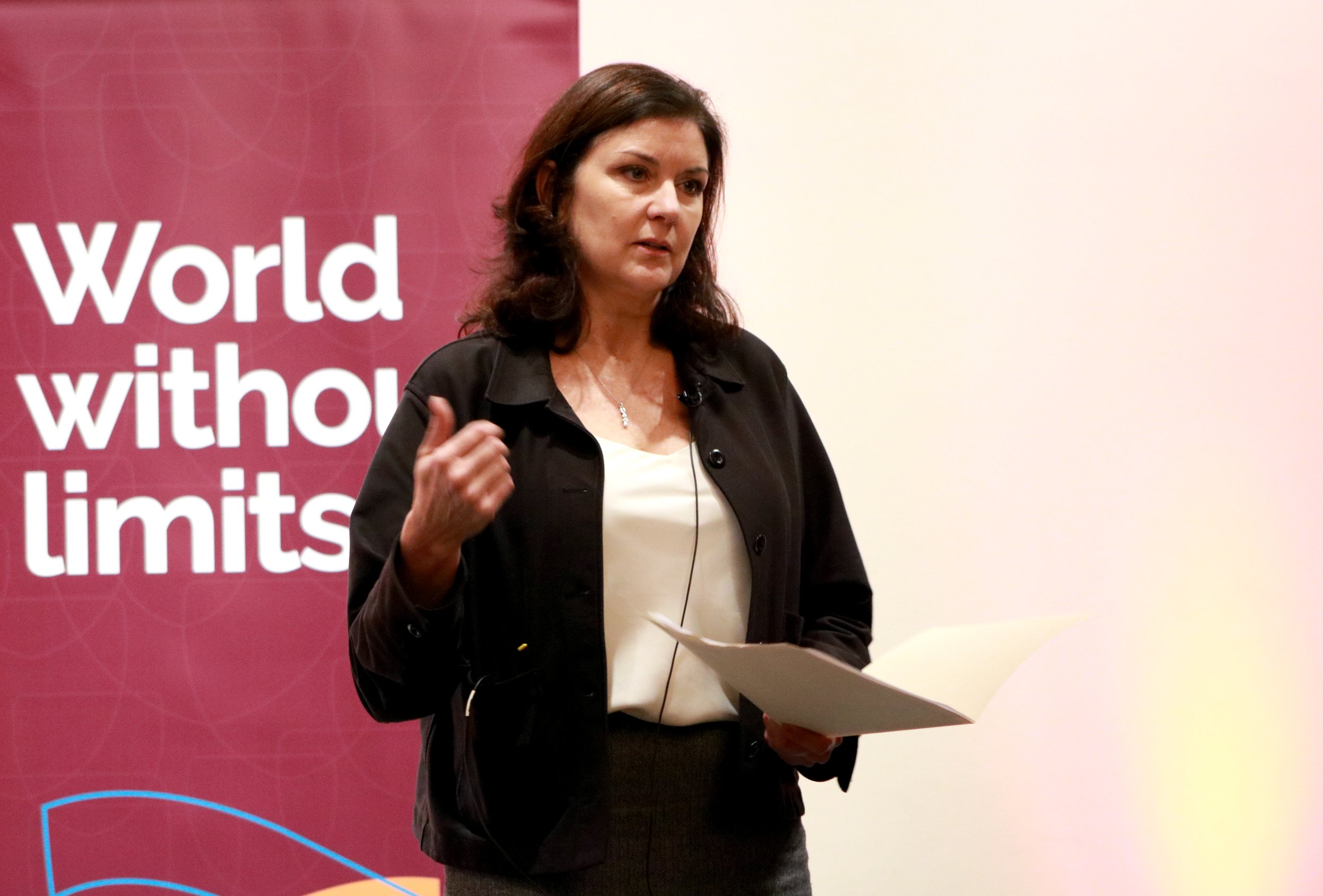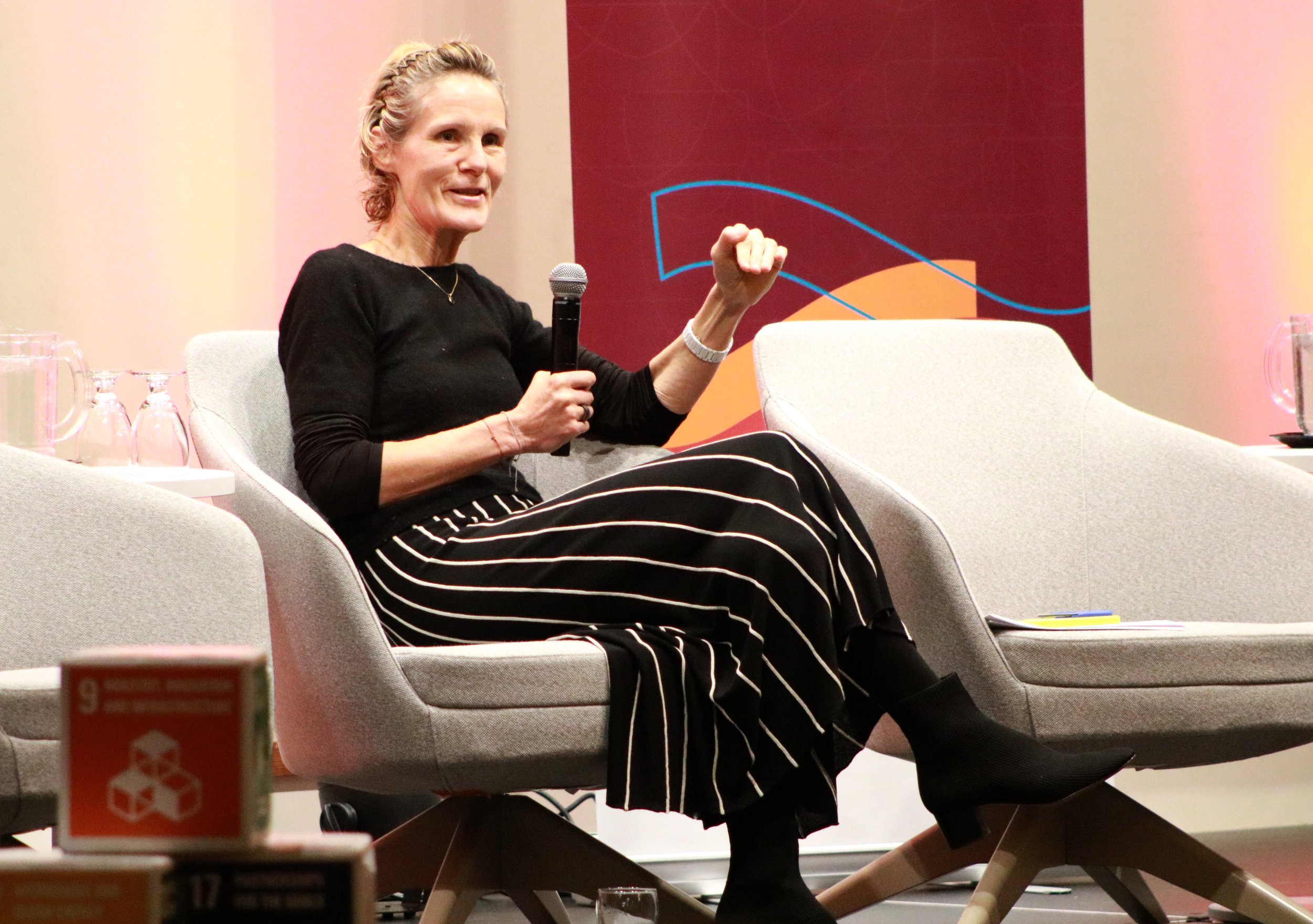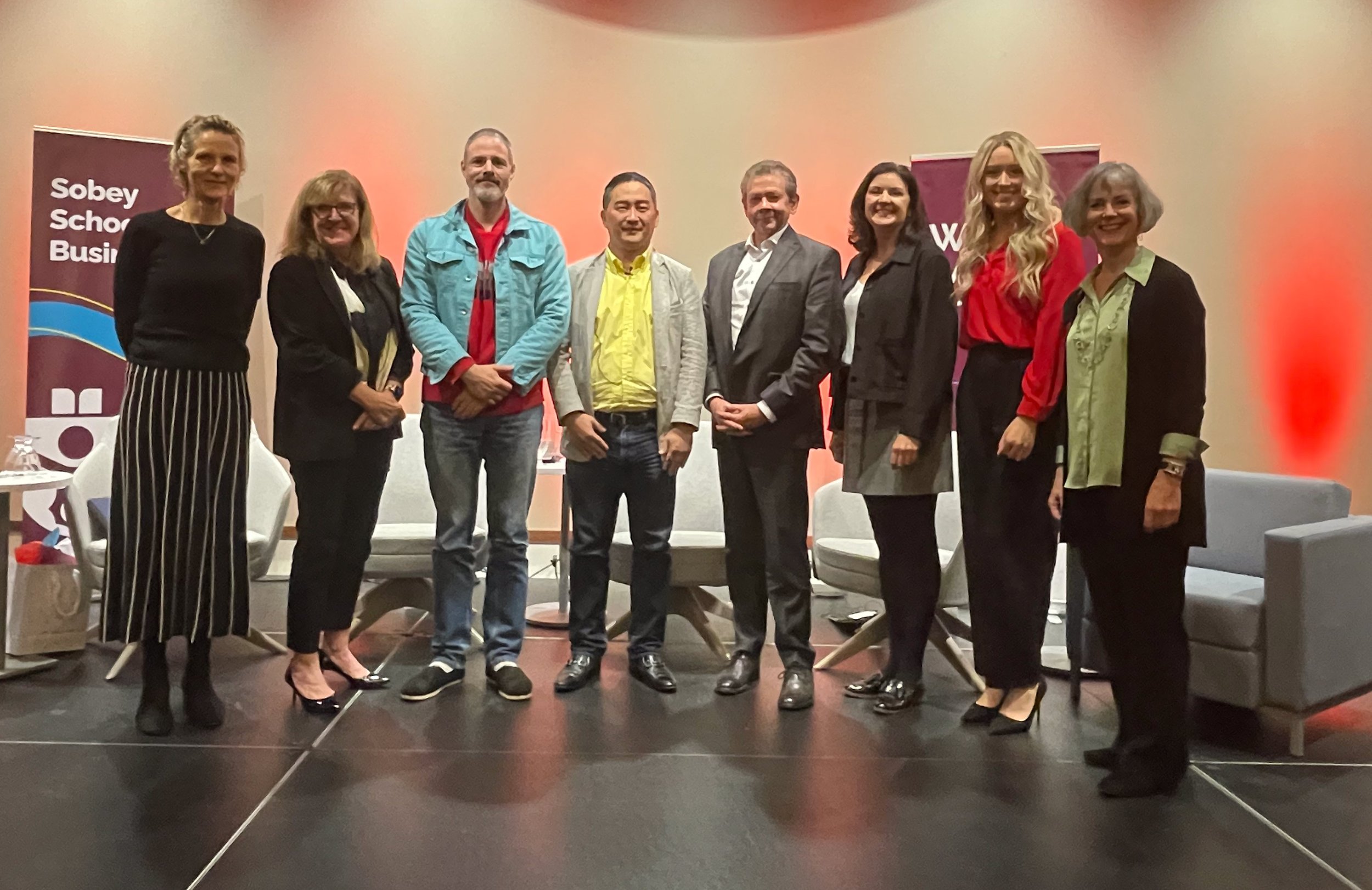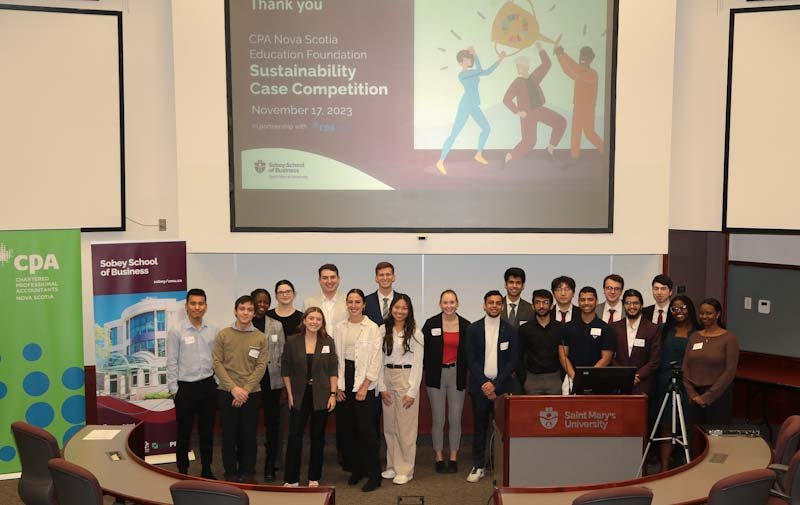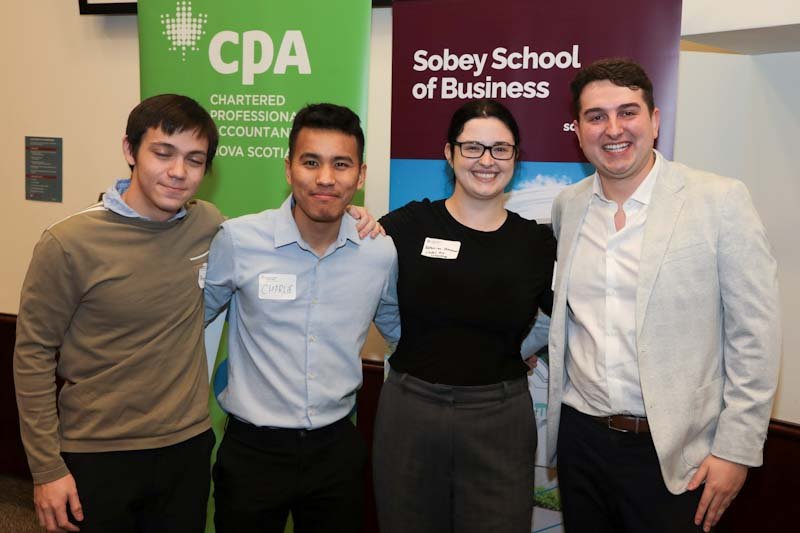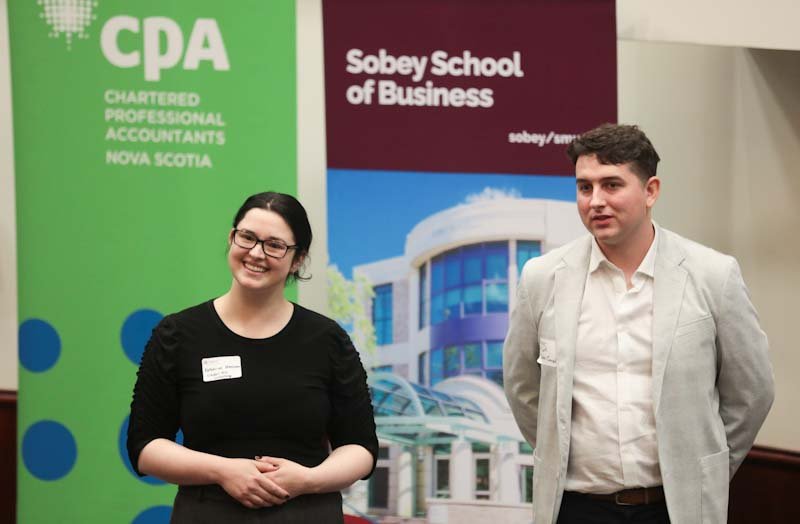June is National Indigenous History Month in Canada, an opportunity to learn about the unique cultures, traditions and experiences of First Nations, Inuit and Métis. It's a time to honour the stories, achievements and resilience of Indigenous Peoples, who have lived on this land since time immemorial and whose presence continues to impact the evolving Canada.
National Indigenous Peoples Day is June 21, the summer solstice and the longest day of the year. For generations, many First Nations, Inuit, and Métis communities have celebrated their cultures, languages and traditions at this time of year. The summer solstice holds deep spiritual and cultural significance for many Indigenous Peoples, marking a time of renewal, connection, and celebration. Learn more.
Saint Mary’s University acknowledges its location in Mi’kma’ki, the traditional land of the Mi’kmaq Nation. The Mi’kmaq flag flies proudly on the university’s campus.
Visit the online Indigenous Community hub to see news, events and resources.
Indigenous Innovation Design Sprint
June 2-3, 2025
Arthur L. Irving Entrepreneurship Centre
Sobeys Inspiration Hub, 5907 Gorsebrook Avenue
Indigenous innovation and entrepreneurship are transforming Canada’s economic and cultural future. With Indigenous entrepreneurs launching businesses at 5x the national rate and contributing over $56 billion to Canada’s GDP, the momentum is undeniable.
Yet barriers persist — from limited capital to systemic inequities.
On June 2 from 3-5 p.m. and June 3 from 1-5 p.m., FlintHub (United College–University of Waterloo) and the TD Entrepreneurship Inclusion Initiative (Saint Mary’s University) are proud to host the Indigenous Innovation Design Sprint—a two-day, hands-on event bringing together Indigenous entrepreneurs, changemakers, and allies to co-create bold, community-driven solutions.
Why Attend?
Learn Indigenous-led & human-centred innovation methods
Build ideas with community, not for it
Connect with peers, mentors, and allies
Leave with real tools, fresh energy, and momentum
Open to all — entrepreneurs, youth, funders, creatives, and those who want to do better.
Faculty and staff are invited to participate in an Indigenous Blanket Exercise on Thursday, June 19, from 1–4 p.m., in Room 324 of the Sobeys Inspiration Hub.
The Blanket Exercise is an experiential workshop that explores the relationship between Indigenous and non-Indigenous peoples in Canada, and helps people to understand how the colonization of this land impacts those who were here long before settlers arrived.
This session will be led by several staff members from Mi'kmaw Kina’matnewey, an educational organization.
To sign up, please email EDI@SMU.ca.
Taking action to support Indigenous students
Kylar Johnson with the team from Eastward Energy
Saint Mary’s University announced a new bursary aimed at supporting Indigenous students, thanks to a generous donation from Eastward Energy. The Eastward Energy Indigenous Opportunities Bursary, available in September 2025, will provide financial assistance to five Indigenous students each year for the next five years. This initiative will help alleviate barriers to post-secondary education and empower future leaders within Indigenous communities.
"This bursary not only helps Indigenous students financially but also affirms the commitment of the university to provide them with the support they need to thrive,” said Kylar Johnson, Indigenous Student Advisor at Saint Mary’s. “It is a tangible, real-world example of creating change. By creating these opportunities, we are reinforcing the importance of community and reconciliation, ensuring that Indigenous voices are heard and valued throughout the university experience."
Red Tape Hockey Game raises awareness around racism in sport
Erin Denny faces off against a STU player during the puck drop with Logan Prosper, Phillip Prosper and Sydney Daniels
In 2019, former Saint Mary’s student Logan Prosper of We’koqma’q First Nation was on the receiving end of a racial slur during a minor hockey game in Cape Breton (or Unama’ki). After that, he put red tape on his hockey stick as a visible reminder that such intolerance has no place in hockey and sport more broadly.
In February, the SMU Women’s Huskies hosted the annual Red Tape hockey game at the Dauphinee Centre against the St. Thomas Tommies. Logan and Phillip Prosper of We’koqma’q First Nation, and Sydney Daniels, a former Harvard University hockey player of Mistawasis First Nation, held a ceremonial pre-game puck-drop. Ryan Francis of Mi’kmaw Kina’matnewey emceed a pre-game reception.
"We have an opportunity through sport to be a voice for change," said Scott Gray, Saint Mary's Director of Athletics and Recreation. "These Red Tape events and our other work with the McCain & McLean Centre will continue demonstrating our shared commitment to being that voice."
An exploration of Indigenous history, perspectives and culture through the Saint Mary’s lens
At Saint Mary’s, Indigenous culture is reflected in several ways. The Patrick Power Library is host to the Mi’kmaq Cultural Materials Display as part of an ongoing collaboration with the Nova Scotia Museum, the Indigenous Student Advising Office and the Indigenous Students’ Society.
Found on the main floor of the Library, the display includes beaver incisors for carving and woodworking, fragments of pottery, an axe head and other artifacts. This collection is accompanied by a selection of books written by Indigenous authors and books about Indigenous cultures.
Around campus, you will also find two pewitekemkewey (dream catchers). The main foyer of the O'Donnell Hennessey Student Centre and the Patrick Power Library are the home to these beautiful pieces, created by former SMU student Isaiah Bernard and his father, Wilbert Marshall, of Potlotek First Nation, in 2020. In 2021, a community drum became a permanent part of the university’s campus, events and ceremonies, reinforcing the collective commitment to Truth and Reconciliation.
Read more about Saint Mary’s place in Mi’kma’ki, Indigenous learning and research, and recognition of MMIWG2S on campus.
Indigenous Student Advisor
Kylar Johnson, shown in the blue sweater, chats with students in the Indigenous Student space
Kylar Johnson BComm’23 is from the Mi’kmaw community of Potlotek First Nation in Unama’ki. As the Indigenous Student Advisor for Saint Mary’s, Kylar connects with Indigenous students to provide resources, supports, and services broadly across Mi'kma'ki, community partners, and the Elder In Residence. Learn more about Kylar and his role.
Students can meet with Kylar in the Indigenous Student space located in Loyola 268. Email Indigenous.Advisor@smu.ca to connect with Kylar.
Explore our library collection
Ta’n Etl-klo'tasik koqoey exhibit
A selection of books featured in the Indigenous collection
The Patrick Power Library is proud to offer a wealth of resources that support learning, reflection and celebration during National Indigenous History Month:
Online Book Display – Explore a curated collection of books by and about Indigenous Peoples. All books can be borrowed with your SMU ID card or accessed online using your SMU email and password.
Indigenous Studies Research Guide – Your starting point for academic and community-based resources on Indigenous research topics, featuring suggested journals, search strategies, databases, government information and other resources.
SMU Theses on Mi’kmaw and Indigenous Research – Discover original research by Saint Mary’s University community members in the Institutional Repository.
Indigenous Peoples of North America Database – A digital archive covering the political, social, and cultural history of Indigenous Peoples from the sixteenth century into the twentieth century. Access is available through the Library.
Streaming Media Collections – Watch Indigenous films and documentaries through the NFB, CBC Curio, Films on Demand, Audio Cine and Criterion databases. Access is available through the Library. Some film selections include:
The Pretendians (2022, directed by Paul Kemp & Drew Hayden Taylor, CBC Television)
Jordan River Anderson: The Messenger (2019, directed by Alania Obomsawin, NFB Canada)
The Grizzlies (2018, directed by Miranda de Pencier, Mongrel Media)
Night Raiders (2021, directed by Danis Goulet, Elevation Pictures)
Kayak to Klemtu (2018, directed by Zoe Leigh Hopkins, Scythia Films & Stellar Citizen)
Permanent Mi'kmaw Heritage Exhibit – Visit the Library to see Ta’n Etl-klo'tasik koqoey (a phrase meaning “where the items are kept or taken care of”), an exhibit celebrating the enduring legacy and culture of the Mi’kmaq people. This exhibit features a collection of Mi’kmaw cultural objects selected by community members, and on loan from the Nova Scotia Museum.













